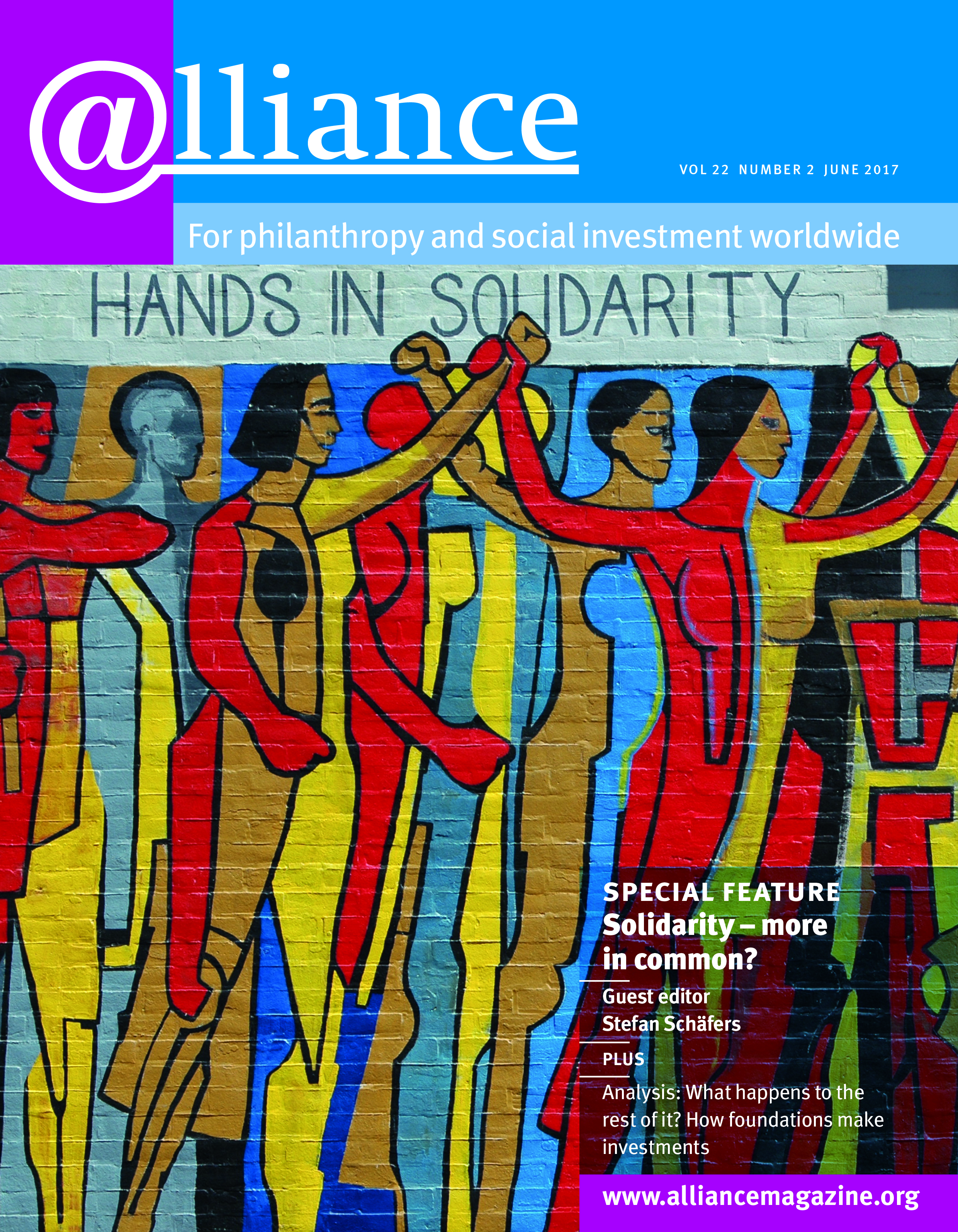Solidarity provides philanthropy with the opportunity to move beyond benevolence to identifying with the experience of those who need our support as they face many and varied challenges. Whether you are committed to providing a better response to refugees, tackling educational disadvantage and youth unemployment, ending homelessness, creating a more sustainable environment or helping to eradicate poverty and famine – human solidarity is the prerequisite for doing things with people rather than to or for people.
For example, the successful marriage equality campaign in Ireland focused on establishing solidarity between gay and straight people by highlighting the need for equality for all.
The international mental health recovery movement is based on the belief that it is possible for someone to regain a meaningful life, despite serious illness, and emphasizes the co-production of services designed so that consumers have primary control over decisions about their own care.
These movements work because the people for whom change matters most have more skin in the game, a greater sense of urgency and less to lose.
Solidarity also helps us to move from individual interventions to systemic dynamics, working with other stakeholders who share our interests and vision and understanding the part that each can play in bringing about change.
For them change is imperative, not just desirable, and that provides the cutting edge for initiatives that are based on solidarity and, indeed, forms the basis for more unified communities and societies that value all citizens. Solidarity also helps us to move from individual interventions to systemic dynamics, working with other stakeholders who share our interests and vision and understanding the part that each can play in bringing about change.
This in turn enables what David Stroh[1] calls ‘high leverage interventions’. Thinking in systemic rather than linear ways is an encouraging trend. However, there is still an unhelpful confusion between scaling organizations and scaling change, and between scaling and systemic change. Replicating organizations or making them bigger is not always the right answer.
Thinking and acting in solidarity with those for whom change matters most means that we are more likely to work collaboratively and creatively to scale impact that may or may not have anything to do with scaling organizations.
It requires us to think our interventions through much more rigorously and strategically, taking account of the embedded interests and unintended consequences that can contribute to the overall results for those with whom we strive to create better opportunities. Complex public systems, with ingrained practices and vested interests, face major challenges in reforming themselves. If targeted strategically, philanthropic funding can be a catalyst in this process.
Philanthropy and government together can achieve what neither can secure alone.
While philanthropy can encourage real innovation involving risk-taking that governments feel they should avoid, governments are best placed to sustain and scale services to whole populations in need. Philanthropy can also act as a lever here, offering resources on condition that government refocus public resources in the desired direction.
Philanthropy and government together can achieve what neither can secure alone. This requires philanthropy to be ambitious, sophisticated and strategic. It requires an understanding of the complexities and challenges involved in catalysing change. My experience of bringing together philanthropy and government to reform complex social service systems has also taught me that it requires a long-term view and long-haul tenacity.
Above all, it involves working in solidarity and recognizing the value of collaboration where all parties make a distinctive contribution to achieve common objectives.
In a climate of reduced spending on public budgets, some argue that we need more philanthropy and less government.
I argue that we need both state and philanthropy – but in more intelligent collaborations. Constrained government resources provide good conditions for this to happen.
Madeleine Clarke is executive director, Genio and chair, European Venture Philanthropy Association. Email: madeleine.clarke@genio.ie
For more on solidarity, listen to our Alliance Audio podcast: Solidarity & Philanthropy.
Footnotes
- ^ David Stroh (2015) Systems Thinking for Social Change: A practical guide to solving complex problems, avoiding unintended consequences, and achieving lasting results. Chelsea Green Publishing.







Comments (0)